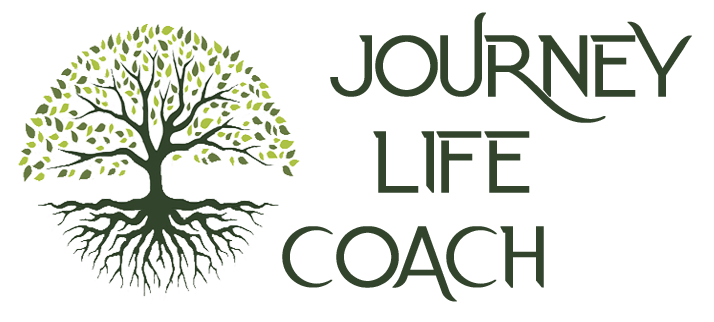I. Introduction
In the quiet corners of her mind, Jamie often found herself lost in a maze of self-doubt and insecurities.
With each passing day, self-criticism grew heavier, casting a shadow over even the smallest glimmers of confidence. Deep down, Jamie secretly believes she is no good at all. Her voice faltered in the presence of others, overshadowed by the fear of judgement and rejection.
Jamie’s story is not unique. Her negative thoughts, emotions, and sensations encapsulate the mindset of someone with low self-esteem – a vicious circle of self-defeat with seemingly no escape in sight.
Do you also sometimes feel you cannot control the important things in your life? Let me remind you that every dark cloud has a silver lining!
Regardless of how engulfed you may feel by feelings of anxiety and depression, there is always a beacon of hope enlightening the path towards transformation to a more confident version of yourself! The transformation journey may be simpler than you think and also holds profound importance in unlocking your true potential. It is not merely a boost to self-assurance; but a catalyst for fostering a sense of fulfilment, resilience, and empowerment across all facets of your life
II. Understanding Confidence
Confidence refers to the belief and trust in your own abilities, qualities, and judgement. It is the acceptance and appreciation of yourself, including an awareness of your strengths and weaknesses.
Confident people have a positive view of themselves and feel in control of their lives. They are more likely to have emotional resilience, better problem-solving skills, and a positive self-image.
Confident people may also be more likely to seek help if they are struggling.
Confidence empowers individuals to navigate life’s challenges with optimism and determination, leading to a fulfilling and happy life.
Cultivating confidence through self-care, self-improvement, and positive self-talk can enable individuals to unlock their full potential and embrace a joyful existence.
III. 7 Simple Habits to Boost Confidence
Habit 1: Positive Self-Talk
Your transformation journey from low self-esteem to self-confidence begins with the recognition of your inner dialogue. Become aware of your thoughts and manage the stories you tell yourself about your abilities, worth, and potential.
Start by reframing your negative self-talk and doubts by affirming your strengths, talents, and values.
Instead of thoughts like “I am such a failure,” reframe them as “I am not defined by my failures”. Positive self-talk will transform your perception of challenges into a mindset of problem-solving and a more resilient YOU!
Remind yourself daily of your worth and capabilities with the following phrases:
- “I believe in my abilities and strengths.”
- “I trust in my journey and have faith in myself.”
- “I am grateful for all the good things in my life.”
Habit 2: Setting and Achieving Small Goals

Goals provide a source of motivation and direct action by defining your desired end state. It will help you to stay on track, so you can feel more confident that you’re doing well. It gives you opportunities to feel proud of yourself for taking small steps.
Start your transformation journey by writing down the steps required to become more confident. Start with small, attainable tasks to establish momentum and boost your confidence. Manageable goals will enhance future well-being.
This habit will set you up for success and progress towards your desired end state.
You can start with the following:
- Set attainable goals
- Break your goal into smaller, short-term steps
- Set realistic deadlines
- Journal your steps to keep track of your progress
- Gauge progress by measurable markers
- Celebrate each small achievement
Remember to stay flexible! Life is unpredictable, so it is important to adapt when necessary. Learn from your mistakes, talk to your life coach, and improve your skills along your way.
Habit 3: Practicing Mindfulness
Mindfulness is a way to become aware of your thoughts and feelings in the present moment. Practising mindfulness will help your body’s nervous system to react in a calming way.
You can utilise mindfulness when you start feeling as though things are spinning out of control. Instead of worrying about what might happen, focus on what’s happening in the moment.
When you practice mindfulness, the calming branch of your nervous system activates, leading to increased creativity and enhanced cognitive abilities.
Follow these steps to practice mindfulness:
- Find a place where you can sit quietly without being disturbed or distracted.
- Turn off your phone and other devices.
- Sit comfortably, with your feet on the floor and your back upright. Set a timer for three minutes.
- Close your eyes and focus on your breath.
- Visualise your breath moving in and out of you— entering through your nose, flowing down into your chest and belly, and then moving back up and out of you.
- Repeat this visualisation for ten cycles of inhale and exhale.
Now, shift your focus from your breath to your mind.
- What thoughts do you notice? Envision your thoughts as something flowing in
and out of your mind, similar to your breath. Imagine each thought as a wave gently lapping against you while you stand firm with your feet on the ground.
- If you realise you’ve become absorbed in a thought—if you’ve been swept away or knocked down by one of these waves—simply acknowledge that it’s happening, ground yourself, and return to observing your thoughts.
- Should you encounter any judgmental thoughts, try to observe them without attachment and let them pass like waves.
Continue to observing your thoughts until the timer signals the end. Before you conclude and move on, take a moment to assess how you feel. Is there any discernible change in your body, your emotions, or your thoughts after dedicating these three minutes to observation?
Engaging in a few minutes of mindfulness daily serves as an effective intervention to enhance your emotional, cognitive, and physical well-being.
Habit 4: Stepping Out of Your Comfort Zone
While your comfort zone offers a sense of security, pushing beyond its boundaries is crucial for personal growth and progress.
By confronting challenges and embracing novel experiences, you can enhance your skills, unearth your potential, and attain greater success in various facets of your life.
Begin by taking small steps and trying something new each day. For instance, if you wish to incorporate exercise into your routine, consider setting your alarm clock 30 minutes earlier. On the first day, take a stroll around the block.
If you happen to miss a day, do not be disheartened, but do not give up either. Stay committed to your goal and resume your efforts the next day. Each step, no matter how small, contributes to your growth and development.
Habit 5: Physical Activity and Exercise

Aerobic exercise is renowned for its capacity to enhance physical well-being and is correlated with improved mental health, enhanced sleep quality, and elevated mood and life satisfaction.
Engaging in aerobic exercise triggers the release of feel-good hormones in your body, fostering a sense of euphoria and boosting self-confidence. This heightened self-awareness can help you recognize your body’s potential, leading to increased confidence and empowerment.
Strive to incorporate at least 30 minutes of aerobic exercise most days of the week into your routine. Whether it’s walking, jogging, cycling, or any activity that accelerates your heart rate, the key is to get moving and enjoy the benefits of this exercise regimen.
Habit 6: Surrounding Yourself with Positive Influences
Make it a habit to surround yourself with supportive friends who comprehend what you are experiencing. Having this network can be invaluable when facing challenges.
True friends are there to uplift you during your toughest moments. They provide encouragement, lend a helping hand, and offer a listening ear when you need it most.
Identify friends who inspire you and embody qualities you admire, viewing them as role models. Don’t hesitate to seek advice and guidance from these individuals as you navigate through various situations.
Consider joining a local sports club or book club to engage in group activities that spark your interest. Participating in such activities can help you forge new connections, expand your social circle, and discover like-minded individuals who share your passions.
Habit 7: Seeing a Life Coach
Recognize that seeking help is not a sign of weakness but a demonstration of strength. Engaging a life coach can assist you in unlocking your full potential and boosting your confidence.
When you enlist the support of a mentor, you gain numerous benefits:
• A fresh perspective: Receiving an external viewpoint on your challenges can prompt you to approach things differently and explore innovative solutions in collaboration with your life coach.
• An opportunity to learn: Your life coach may introduce you to new tools or techniques you haven’t encountered before, contributing to your personal growth.
• A chance to forge connections: Rather than feeling burdened, most individuals feel honoured to be approached for assistance and derive satisfaction from guiding and aiding their clients.
When seeking a life coach, prioritize finding a professional who can guide you through your transformation journey. Look for a coach who specializes in addressing your specific needs and is equipped with the necessary training to support you effectively.
IV. Overcoming Setbacks and Self-Compassion
Change rarely unfolds smoothly, quickly, or in a linear fashion; often, it feels like taking two steps forward and one step back.
Along the journey of progress, facing challenges can erode your confidence.
Remember, as long as you are making an effort, you are already succeeding. The obstacles encountered on your path are not only normal but can also be transformative.
Embrace your mistakes as they can enrich your journey with character. Consider them as opportunities to learn and fortify your resilience.
Practice self-forgiveness, self-acceptance, and self-love during times of adversity.
Treat yourself with the same compassion and understanding you would offer a dear friend confronting a tough situation. This entails recognizing your struggles without self-criticism, providing yourself with uplifting words, and approaching yourself with kindness and gentleness.
V. Conclusion
As behaviors are repeated over time, they evolve into habits that are less reliant on the initial goals that spurred them. It’s essential to keep in mind the significance of consistency and flexibility as you embark on the path to boosting your confidence.
Transformation starts with taking small steps, and it may require several weeks to months for a new habit to solidify.
For the first step in your transformation journey, consider reaching out to your life coach. Their guidance and support can be instrumental in helping you navigate through challenges build confidence and achieve personal growth.

RESOURCES
- Johnson, L. How mental health affects physical health. https://honorconnor.org/2022/05/how-mental-health-affects-physical-health/
- Popovich, S. 2023. How I overcome the vicious cycle of worry and fear. Hanford Sentinel. https://hanfordsentinel.com/lifestyles/health-med-fit/how-i-overcome-the-vicious-cycle-of-worry-and-fear-stan-popovich/article_25ae924f-e8b8-5fc6-9c56-16b7e1415a10.html].
- Crane, C. et al. 2012. Effects of Mindfulness-Based Cognitive Therapy on Specificity of Life Goals. https://pubmed.ncbi.nlm.nih.gov/22661794/
- Mosunic, C. How to develop present moment awareness with mindfulness. https://www.calm.com/blog/present-moment-awareness
- Dobosz, A.M. The Perfectionism Workbook for Teens. https://www.amightygirl.com/the-perfectionism-workbook-for-teens
- Van de Velde, J. et al., 2023. Doing what matters in times of stress: No-nonsense meditation and occupational well-being in COVID-19. https://journals.plos.org/plosone/article?id=10.1371/journal.pone.0292406
- Tigar, L. 2023. 5 Things That Happen to Your Mental Health When You Don’t Get Enough Exercise. https://www.realsimple.com/health/mind-mood/what-happens-to-brain-without-exercise
- Parker, S. 2021. The science of habits. https://knowablemagazine.org/content/article/mind/2021/the-science-habits

